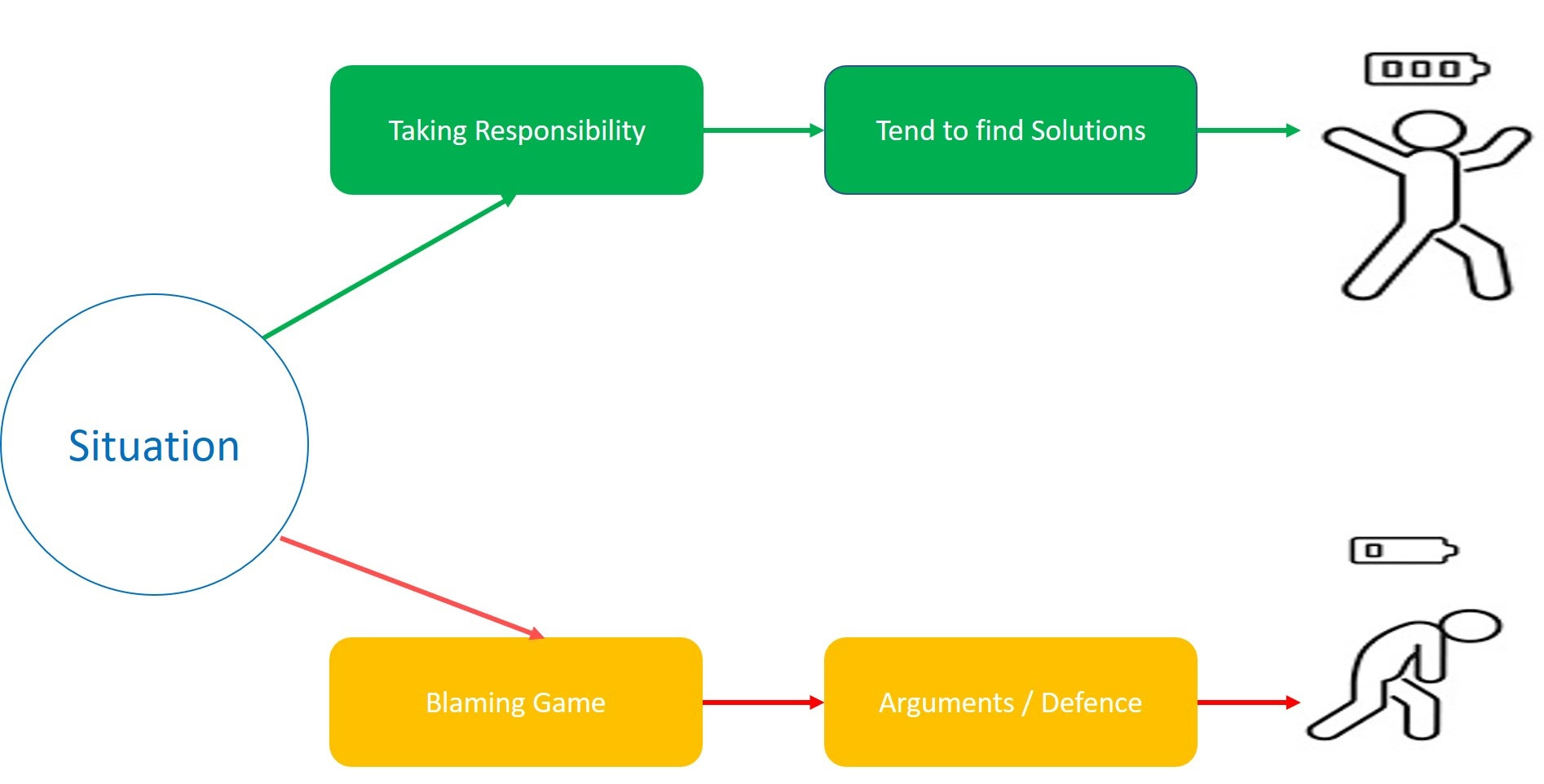How do effective people manage their energy? Taking Responsibility
(Execution Excellence -"Ability to get things done" Series)
The next practice we can observe in the most effective people is taking responsibility and stopping blaming game.
The definition of responsibility is the mental ability to respond to a situation.
When we confront an adverse situation in the workplace, either we own the problem or blame others for being in the situation.

When we own the situation, we tend to find solutions by fixing the process or educating the people. In this process, we eventually near to solutions or solve the problem. When we are part of the solutions, we feel elated and tend to be at a high energy level thereon.
Whereas, when we blame others, others find a reason to defend or reciprocate the blaming. In this process, we tend to be upset, angry, helpless, and, in turn, feel low energy levels.
The choice of taking responsibility help.
How do people demonstrate responsibility in adverse situations?
One of my bosses is very sharp in observation; the moment he realizes something is wrong in the situation due to some people, he immediately responds with the statement, " Ok, what needs to be done now?
The statement is powerful and turns all the people to look toward the solutions instead of looking for someone to blame. He sets the culture of taking responsibility in the organization rather than creating chaos through blaming and arguing. That is the power of taking responsibility.
To get a sense of responsibility, suggest experimenting next time when you confront adverse workplace situations.
Taking responsibility will give us a higher energy level than being inactive or blaming others. Awareness and practice help us to become more energetic in the workplace.
Have a great week ahead.








